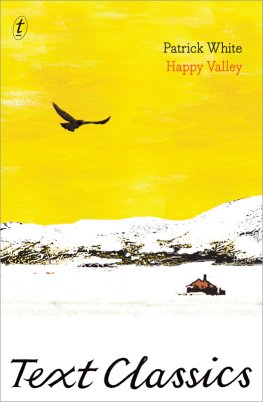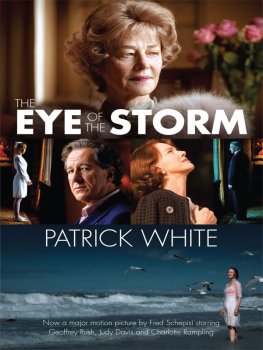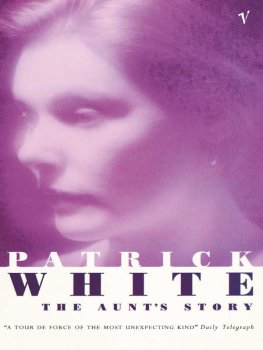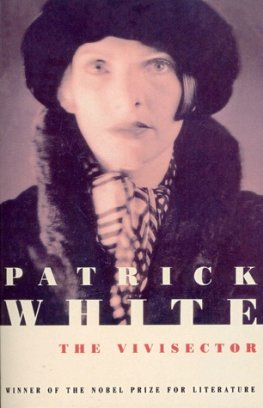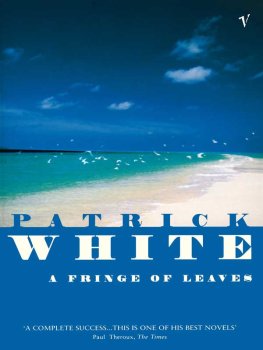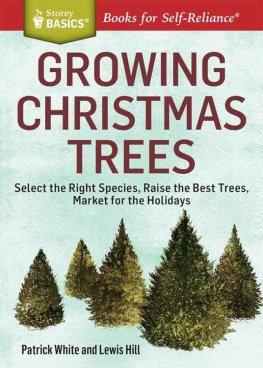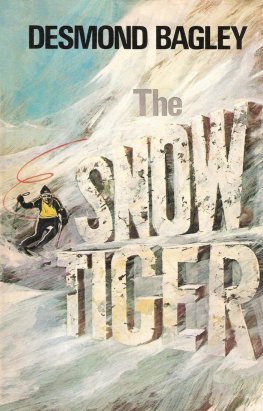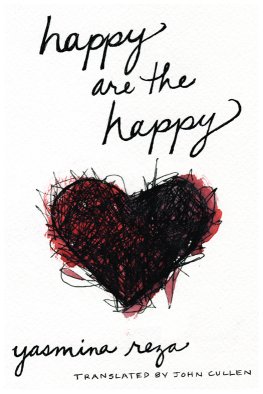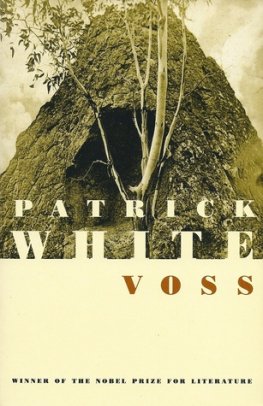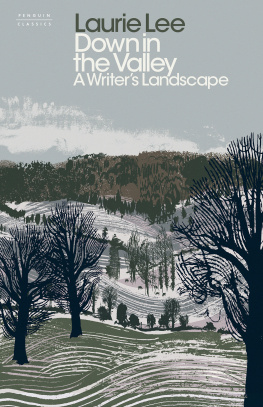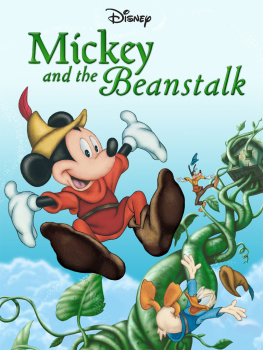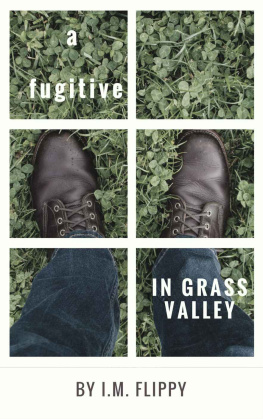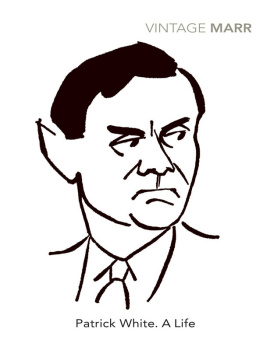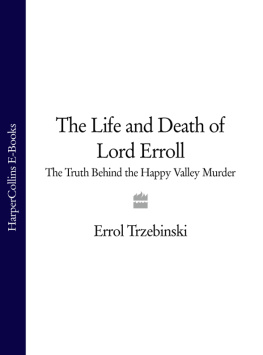Patrick White
Happy Valley
Jackeroo Epic by Peter Craven
Happy Valley is the first of Patrick Whites novels and it is a consistently compelling book, as well as the exhilarating performance of a great writer in the making. Everyone knows the legend, rooted in truth, that Patrick White finds his voice as a consequence of the war and after discovering the love of his life in Manoly Lascaris; and that the first in the long line of his masterpieces is The Aunts Story which he brings back to Australia with him in 1946, the token of his love/hate for the country which provides the enduring matter of his great works, the intimately suffered homeland which he cannot separate from the compulsions of his own heart.
In fact Happy Valley is as self-consciously Australian a book as any cultural nationalist could hope for and its not for nothing that the novel, published in London in 1939, was awarded the Gold Medal of the Australian Literature Society in 1941, the year when A. A. Phillips, the future propounder of the Australian Cultural Cringe syndrome, was one of the judges.
Happy Valley is, in fact, a panoramic novel of Australian life which reflects Whites own experience in the Monaro as a jackaroo, and the fact that it is situated in a country town and distributes the narrative interest fairly evenly among a group of characters gives the book a peculiar novelty and freshness not least because White apparently forbade the books republication, perhaps because of the way it reflects some unflattering details about a local Australian Chinese family, perhaps because Happy Valley is so manifestly the work of a young writer who is finding his feet.
But the latter point is easily misunderstood. The White of The Aunts Story is fully formed, even though that drama of dreams and madness and spinsterly isolation is in some ways the dragon at the gates of Whites work. Certainly from The Aunts Story in the mid-1940s through to The Twyborn Affair in 1979 there is a consistent maturity and confidence in every page White writes and there is also which is both a giveaway and a signature feature an effortless sense of drama. You dont have to know precisely where you are in those dislocated and deranged sections of The Aunts Story to know that you are in the hands of a great writer (which is not to say that White did not retain his unevenness throughout his career).
But the fact that Happy Valley is a rawer effort does not stop it from being a consistently engrossing novel. It confronts the reader with the pulsation and sheer narrative momentum which is one of the characteristics of Australias always rather old-fashioned master of the novel form. This together with the fact that the book has been out of circulation virtually from the outset is likely to trick readers who think they know the early work (and that it is not worth revisiting), as indeed it tricked me. Hardly anyone has read Happy Valley, and if they have it is likely to be under the shadow of the later work.
Happy Valley is, in fact, the undiscovered country of Patrick White and it is a remarkable book. It shows the young White fiddling with the dominant influences of his time, and it may well be the case that he was even more embarrassed by the books formalistic high jinks than he was fearful of its heavy-handed (actionable) bits of literalism.
He admitted that he was very much under the influence of Gertrude (Stein) who is, among all the worlds writers, the most improbable to have tinkling in the background of a novel of Australian pastoral and small-town life. He also saw himself as having been drunk with the technique of writing and said he had gone up that cul de sac the stream of consciousness.
In practice Gertrude Stein seems to have led him to a bit of decorative patterning, to rhythmic repetitions and paratactical touches of phrasing that sometimes make his sentences somewhat overloaded or too heavily coloured, but the other side of this, the so-called stream of consciousness, is in fact a pretty impressive and flexible adaptation of what can be learned from James Joyce and, rather surprisingly, doesnt get in the way of the narrative.
Happy Valley dispenses with quotation marks to indicate speech and it uses a very flexible roving point-of-view technique, with bits of inserted monologue, but the effect is the opposite of slow-moving or obscure.
Its fascinating to see an essentially dramatic novelist like White so enthralled by Joyce but the upshot is, for better or worse, much less brocaded and oracular than a lot of Faulkner, the obvious point of comparison.
Anyone coming fresh to Happy Valley would conclude that the twenty-seven-year-old Patrick White reflected the techniques of his literary elders that were in the air Virginia Woolfs excruciated reveries, Dos Passoss roving camera eye with its hunger for communitarianism but they will be more struck by the confidence with which he commands his canvas in the face of the most progressive and arty impulses in the world.
Happy Valley takes its epigraph from Gandhi (the purer the suffering the greater the progress) and White proceeds to present the souls dark night in a range of ordinary human hearts.
David Marr says Happy Valley was Whites best plot. Although this is not quite true, it certainly has the sketch of an elaborate one. The doctor, Halliday, is adrift in a dry marriage and finds himself falling in love with Alys, the piano teacher. She, in turn, is the ministering angel to Margaret Quong, the pensive child of an Australian Chinese family who has little time for her drunk father and querulous white mother, but communes with Amy, her very implicit and sympathetic aunt. She is a love object of a kind though shes a few years older to the doctors son, Rodney. At a dramatic moment in the book she is struck by the asthmatic and frail schoolteacher, Moriarty, whose happy-go-lucky wife, Vic, is conducting an affair with the loud rouseabout, Clem Hagan. He, a saturnine figure with a remote resemblance to the laconic masculine figures of Whites later fiction, doesnt mind tumbling in the hay with Vic but he would also like to get his hands on Sidney Furlow, the squatters daughter who is captivated by him and treats him as her plaything.
Happy Valley builds up to a tremendous quasi-Joycean set piece in which all the voices wind in and out of each other at the races and then just as were starting to think its all a bit orchestrated and lush there is a murder, an act of mutilation and outrage, a further death and the hovering shadow of suspicion over one of the major characters. And then there is a solution to this which is breathtaking and weird, though very much in line with the heightened melodrama and chiaroscuro which the novel has been exhibiting throughout, where White (like Faulkner before him) comes across as a highbrow writer enacting a pas de deux with a much more red-blooded and populist conception.
After which the novel, in its last movement, ends much more elegiacally, in a return to the saddened but not hopeless faces of the young. There is a new-found monogamy, a departure and the intimation of a less illusioned future.
Happy Valley is a dazzling first novel in which Patrick White passionately attempts to ride the wild horse of his experimental impulses while also indulging, with extraordinary ambition, his inclination to write a saga of country life in the face of the most riddling existential and spiritual perplexities as well as every kind of violent dislocation.
In the end it is the narrative impulse that wins out but it is fascinating to see how much the decorativeness of a late modernist technique is made to contend with the sweep and fury of a writer who wants to create a landscape equal to the most savage and erotic drama he can envisage.

